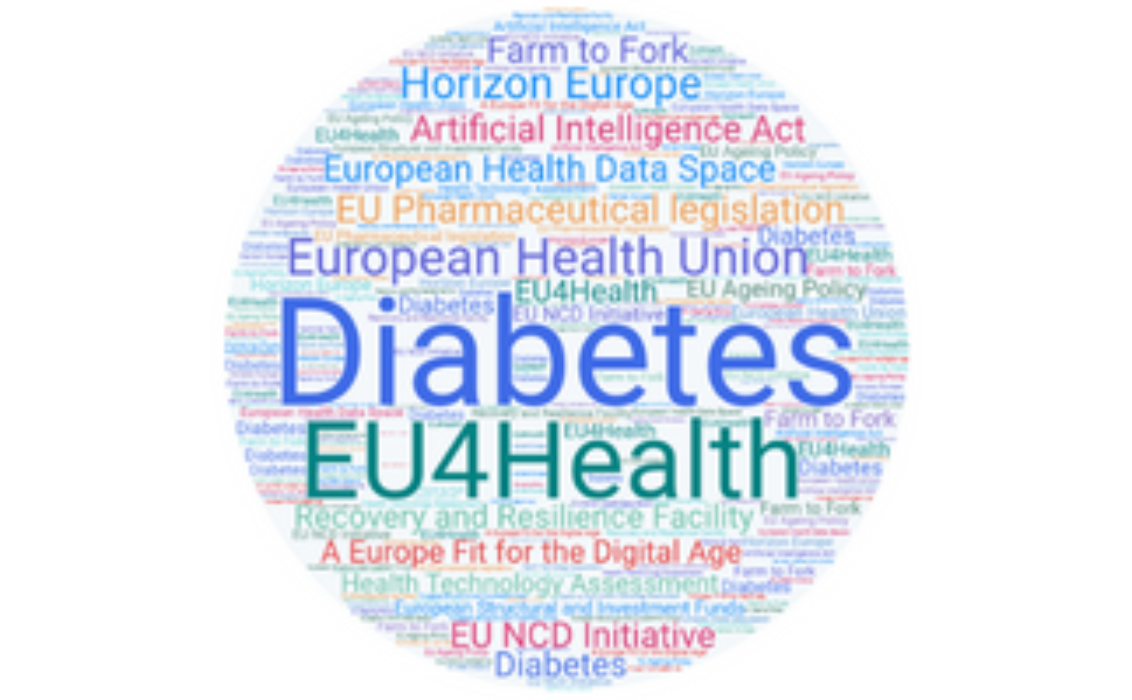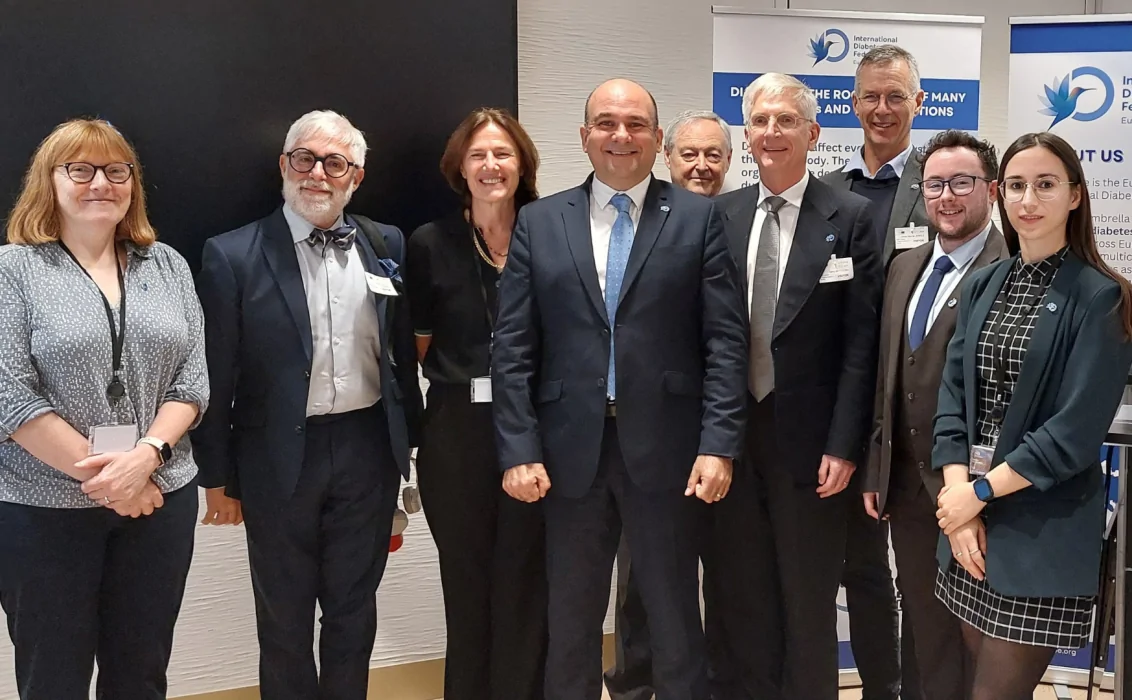On 15 December 2021, European Commission DG SANTE organised a stakeholders’ webinar on the EU Non-Communicable Diseases Initiative – Healthier Together. IDF Europe took part in this first stakeholder consultation. We are delighted that the initiative is targeting diabetes as an individual NCD alongside cardiovascular, respiratory and mental and neurological diseases.
More than 32 million people live with diabetes in the EU – one in ten adults. The impact of this life-long condition on their health and well-being, not to mention its substantial economic burden on health budgets – estimated at about 9% of EU health expenditure in 2019, are often underestimated.
The COVID-19 pandemic has also disproportionately affected people living with diabetes (PwD) who are at heightened risk of developing a serious and more deadly form of the disease. The burden associated with the lockdown measures throughout the pandemic has constrained PwD’s ability to exercise and/or eat healthily and caused significant psychological distress. The pandemic continues to disrupt access to care, essential complications screening, and diagnosis, which will undoubtedly lead to severe complications over the longer term.
IDF Europe and the diabetes community welcome the EU NCD Initiative and its focus on diabetes as a first step towards addressing the burden of the condition in a systematic and structured way and recognising diabetes as a key priority that requires societal, structural and organisational changes. We also support a horizontal approach to health determinants to reduce the incidence of non-communicable diseases such as diabetes, ensure equitable access to care and improve health outcomes. This transversal priority will help address modifiable risk factors such as tobacco, alcohol and unhealthy diets but most importantly tackle the widespread inequalities in access to care that result from socio-economic and environmental determinants of health such as poverty, climate change and the food industry.
IDF Europe also welcomes the scope of the initiative, ranging from data collection and knowledge sharing, health promotion and disease prevention, screening and early detection, diagnosis and treatment up to improving quality of life.
- Knowledge sharing / data collection and exchange: the development of harmonised Europe-wide data frameworks will enable the collection of data and knowledge that can be translated into policy actions, to best influence diabetes prevention, management and care across Europe, in line with the objectives of a European Health Data Space. Collecting data across the Union around a commonly-agreed set of indicators, including patient-reported outcomes, will allow for faster and more comprehensive analysis of effective interventions, more efficient resource allocation, facilitate the integration of care and the deployment of innovation and help tackle wasteful clinical care, operational waste and governance-related waste. It will also allow for more patient-centred and personalised care, ensuring better outcomes.
- Health promotion and disease prevention: diabetes is a serious and complex condition that affects 10% of the EU population and is often associated with other serious health issues such as heart disease, stroke, blindness, and kidney failure. Lowering the risk of Type 2 diabetes and diabetes-related complications will allow for huge savings that could in turn be allocated to other priorities, including investment in improved management and care across all disease areas. It also benefits everyone’s health and well-being. Strong evidence suggests that health promotion initiatives and policies addressing the environmental, cultural, and socio-economic determinants of health not only benefit PwD and those at risk, but also the general population.
- Screening and early detection: screening people at risk of developing diabetes and diabetes-related complications will help in ensuring that the relevant action is undertaken early (e.g., initiation of education and treatment) thereby delaying, or reducing the risk of developing the condition and/or its complications. While the investment in upfront screening and risk-reduction campaigns might be significant, the case for the cost-effectiveness of prevention has been clearly demonstrated.
- Diagnosis and treatment management: early diagnosis must go hand-in-hand with early action on treatment management. Newly-diagnosed people must gain access to the most adapted interventions (e.g., training and education, lifestyle intervention programmes), medicines, technologies and care, immediately, and for as long as they need them. Healthcare professionals (HCPs) must be supported and encouraged to follow guidelines more closely to tackle therapeutic inertia. In many countries, the intensification of treatment has been shown to lag significantly behind the point when it should have been initiated, thereby causing potentially preventable complications.
- Improving quality of life: diabetes is a condition that affects the mind just as much as it affects the body. It requires lifelong, 24/7, self-management by the person living with the condition, with infrequent input from HCPs. To lead long and healthy lives, with full realisation of their personal expectations, PwD, their families and carers/relatives require psychological support and uninterrupted access to good quality care.
We acknowledge the important role given to NGOs and civil society community in providing recommendations in co-creating this new initiative. We welcome the emphasis placed on ensuring multi-stakeholder collaboration with Member States (MS) and international organisations such as WHO Europe, OECD and the European Investment Bank as well as cross-sectoral collaboration among DG Sante, DG Research, DG Employment and other agencies. We need to continue working within the framework of the Sustainable Development Goals (SDGs) and WHO targets, while establishing a common agreement on the approach to NCDs and health determinants at EU and MS level.
In implementing this initiative, it will be crucial that the Commission and MS ensure meaningful engagement of PwD across all stages of consultation, policy development and implementation. PwD are experts in managing their condition on a daily basis and are best equipped to make decisions surrounding their care and decide what health outcomes matter most to them.
IDF Europe is committed to improving the lives of people with diabetes. Together with other diabetes stakeholders, we welcome the opportunity to work closely with the European Commission, Member States and international organisations, to provide further input and to co-create a Diabetes Policy Roadmap that will support Member States to build back better and fairer.



